What will happen if Trump wins the election?
What will he do if he beats Kamala Harris to become US president again? His promises and potential policies examined.
Donald Trump went back to the policy focus that launched him into the presidency in 2016 by placing immigration at the heart of his 2024 campaign, a strategy he hoped would help him defeat Democratic rival Kamala Harris in yesterday’s (Tuesday’s) election.
He is vowing to recreate the low-inflation economy of his first term to win over voters angry at the steep rises in prices and interest rates during Joe Biden’s four years in the White House.
Unlike his failed 2020 re-election campaign, when he did not have a manifesto, Trump, 77, has made numerous pledges and set out plans that give American voters a real taste of his ambitions for a second term as US president.
Below we examine each of his potential policy areas in more detail.
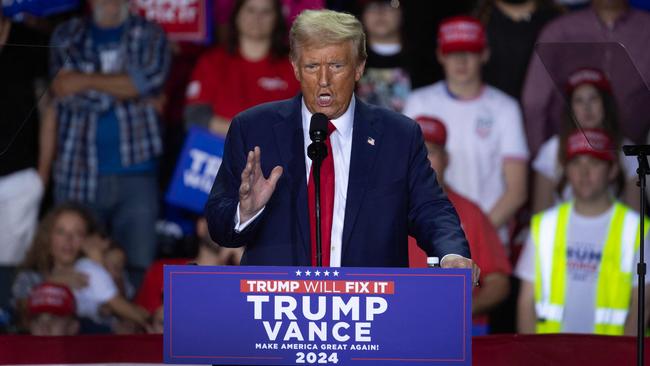
What will happen if Trump wins?
So far, Donald Trump has promised during his 2024 election campaign:
– Rounding up illegal immigrants in camps and launching “the largest domestic deportation operation in American history”
– Ending the war in Ukraine on his first day in office
– Building a “state-of-the-art next-generation missile defence shield” for the US
– Introducing up to ten new “freedom cities” and an anti-woke university
– An Energy policy he sums up as “drill, baby, drill”
– A central credentialling system for teachers to show they “embrace patriotic values”
– Military intervention to control domestic protests
– The shooting of shoplifters
– A ban on abortion “in later months” except in cases of rape and incest
– Cost-free IVF access for all
– The death penalty for drug dealers and child traffickers
… and much more.
Immigration and the border wall
It was arguably his promise to “build the wall” along the southern US border, and get Mexico to pay for it, that was his single most eye-catching proposal during the 2016 contest with Hillary Clinton.
This time he is pledging to complete the job, after Joe Biden halted construction on the barrier along the 1,954-mile frontier in 2021. Under Trump’s presidency, about 459 miles of the wall were built or renovated, including 49 miles that previously had no barrier.
At least 11 million undocumented migrants live in the US, with about eight million working in sectors including agriculture and hospitality. Trump has said he will expel them, and in an interview with Time Magazine refused to rule out building new detention camps to assist with the expulsions.
“We’re not leaving them in the country, we’re bringing them out,” he said, adding: “I think the National Guard would be able to do that. If they weren’t able to, then I’d use the military.”
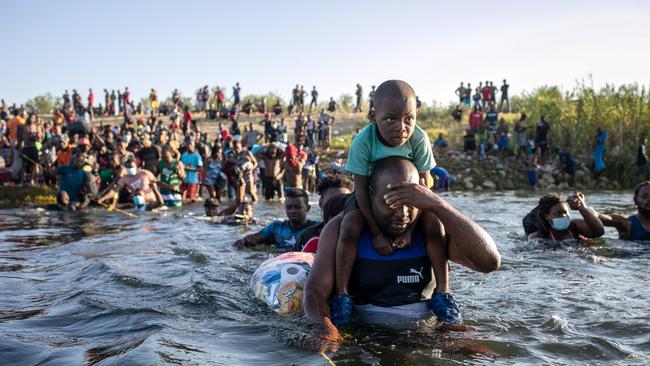
His immigration strategist, Stephen Miller, told The New York Times: “Any activists who doubt President Trump’s resolve in the slightest are making a drastic error – Trump will unleash the vast arsenal of federal powers to implement the most spectacular migration crackdown. The immigration legal activists won’t know what’s happening.”
Some economists warn that this risks disrupting the US economy and stimulating inflation because employers would have to pay higher wages or cut production and services, driving up prices through scarcity.
Trump plans to end the “catch and release” approach of the Biden administration, whereby asylum-seeking migrants are given a court date and released into the United States. He wants to bring back the “remain in Mexico” policy that forced asylum seekers to wait outside the US for their case to be assessed.
He plans to use executive orders to restore his entry ban on visitors from several majority-Muslim countries, which was scrapped by Biden. Visas of foreign students known to have participated in anti-Israel or pro-Palestinian protests would be revoked. Consular officials will be told to increase the ideological screening of visa applicants to block those considered to have undesirable attitudes.
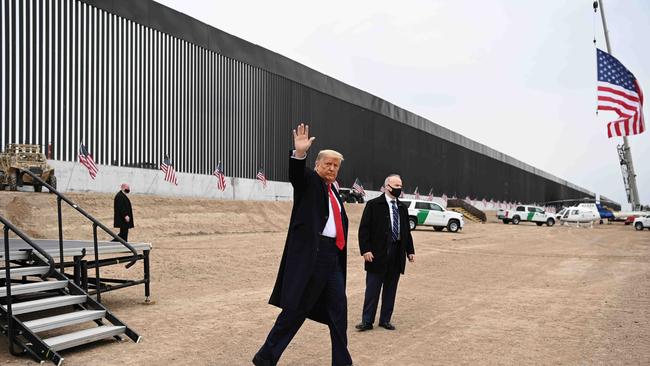
Trump wants to end “birthright citizenship” for babies born to undocumented parents. If this is directed by an executive order, rather than an act of Congress, there is likely to be an appeal to the US Supreme Court.
The nation’s top court will probably also have to revisit Trump’s attempt to end Deferred Action for Childhood Arrivals, an Obama-era program granting work permits to about 580,000 young people who came in illegally as children and have now grown up. Since the nine-member Supreme Court upheld the program by five to four in 2020, Trump added a conservative judge to replace the late liberal champion Ruth Bader Ginsburg, who was part of the majority.
An attempt will be made to reinstate the health-related rejection of asylum seekers used during the pandemic. Miller said that entry could be refused on the basis of “severe strains of the flu, tuberculosis, scabies, other respiratory illnesses … or just a general issue of mass migration being a public health threat and conveying a variety of communicable diseases”. This is another measure that would face court challenges.
Economy and trade
Asked what he would do to get inflation down, Trump told Fox News he would take all restrictions off fossil fuel production imposed by Biden to mitigate climate change.
“Promoting American energy is a good idea with respect to lowering the prices of everything,” Stephen Moore, a former White House economic adviser now advising Trump’s campaign, said. “Getting back to using all our energy is a high priority for Trump and all Republicans. It’s really one of the dividing issues between the left and right today.”
Trump has floated plans for a universal 10 per cent tariff of up to 20 per cent on all imports and as much as 60 per cent on all Chinese goods. The levy on foreign cars made in Mexico or China would be “100, 200, 2,000 per cent,” he said in an interview with Bloomberg News, in which he also said “the most beautiful word in the dictionary is tariff.”
He has also said he will phase out China’s “most-favoured nation” trade status, and adopt a four-year plan to phase out all Chinese imports of essential goods – “everything from electronics to steel to pharmaceuticals.”
Most economists warn that these costs would end up being passed on to US consumers and add to inflation.
“We will phase in a system of universal, baseline tariffs on most foreign products,” Trump said on his Agenda47 website. “On top of this, higher tariffs will increase incrementally depending on how much individual foreign countries devalue their currency. They devalue their currency to take advantage of the United States.”
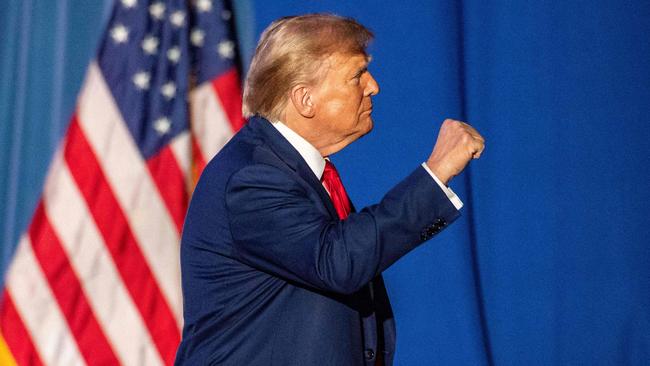
Trump’s first-term trade war with China cost Americans an estimated dollars 195 billion, according to the American Action Forum, a conservative think tank.
Even Moore is not convinced. “Trump is also talking a lot about tariffs now,” he said. “There is a way of doing tariffs that is revenue-raising but I’m a free-trade guy and I’m opposed to protecting the steel industry, the car companies.”
He suggested that Trump’s 10 per cent tariff should not be taken too literally. “I saw Trump in action during his four years as president and he was able to win concessions from other countries by just threatening tariffs,” he said. Indeed, Trump used the threat of a 25 per cent tax on European cars to win more investment by German manufacturers in the US. “So some of this is Art of the Deal,” Moore said, referencing Trump’s 1987 book.
Trump has also said that he will direct Congress to make permanent the tax reductions of the Tax Cuts and Jobs Act of 2017 that are due to expire at the end of 2025. A recent report by the nonpartisan Congressional Budget Office said this would add dollars 3.5 trillion to the nation’s record debt of dollars 31.4 trillion.
Energy and the environment
Trump summed up his approach to energy with a slogan: “Drill, baby, drill.”
This means tax breaks for oil, gas and coal companies, and opening up public lands for energy exploitation.
He plans to ask Congress to repeal much of Biden’s dollars 369 billion Inflation Reduction Act, the largest climate measure in history that included incentives for clean energy projects and electric vehicles.
He would pull the US back out of the Paris agreement to cut emissions, after Biden reversed Trump’s original withdrawal.
His Agenda47 website adds: “Trump will immediately stop all Joe Biden policies that distort energy markets, limit consumer choice, and drive up costs on consumers, including insane wind subsidies, and DOE [Department of Environment] and EPA [Environmental Protection Agency] regulations that prevent Americans from buying incandescent light bulbs, gas stoves, quality dishwashers and shower heads, and much more.”
Targets for electric vehicle use will be scrapped and Trump will also end “Biden’s insane fuel economy standards that will cost the auto industry an estimated dollars 200 billion and raise the average cost of vehicles by more than dollars 1,000”.
Education and the culture wars
Trump’s promised closure of the federal Department of Education would allow individual states to run the service completely. At the same time, he wants the states to focus education on preparing children for work, “rather than indoctrinating young people with inappropriate racial, sexual and political material, which is what we’re doing now”.
It is unclear whether Trump will be able to enforce any of his classroom policies without a Department for Education, especially in Democrat-controlled states, but that has not stopped him setting out his demands.
He pledged to sign an executive order “instructing every federal agency, including the Department of Education, to cease all programs that promote the concept of sex and gender transition, at any age”.
His Agenda47 website states: “President Trump will ensure our children know the truth about the American Founding, learn the stories of our remarkable heroes, discover the glories of Western Civilization, and come to appreciate the United States as the freest, most prosperous, and most virtuous nation in the history of the world.”
Trump said he would “create a credentialing body to certify teachers who embrace patriotic values and support the American Way of Life”.
This all plays into America’s so-called culture wars, where school board elections have become fiercely political.
In addition, federal funding will be earmarked “to hire veterans, retired police officers, and other trained gun owners as armed guards in our nation’s schools – a measure that will help deter unhinged maniacs and keep our nation’s children out of harm’s way”.
Trump said he would raid the wealthy endowments of top private universities to fund a degree-awarding American Academy that would have a mission “to make a truly world-class education available to every American, free of charge, and do it without adding a single dime to the federal debt”. All of its material would be available online free of charge, he said, and “there will be no wokeness or jihadism allowed”.
Justice and the war on drugs
Trump has vowed to pardon everyone convicted in connection with the riot by his supporters at the US Capitol on January 6, 2021, referring to them as “hostages”.
Trump will “ask Congress to ensure that anyone caught trafficking children across our border receives the death penalty immediately and that includes … women, because women as you know are number one in trafficking”.
He said he would impose “a full naval embargo on the drug cartels and deploy military assets to inflict maximum damage on cartel operations”. He will also ask Congress to extend the death penalty to drug dealers.
Abortion and IVF
In what is expected to be a key issue for voters, Trump has said he is in favour of a ban on abortion “in the later months”, except in cases of rape and incest.
Most Republican-led states have legislated for tight abortion restrictions after the Supreme Court overturned Roe v Wade in 2022, which enshrined the right to have a termination. Some states have banned abortions outright, and have made it a criminal offence for people assisting a woman who is attempting to have a termination.
“Like Ronald Reagan I am strongly in favour of exceptions for rape, incest and life of the mother,” Trump said in a video on his Truth Social platform after months of mixed signals. He has repeated this sentiment at rallies since.
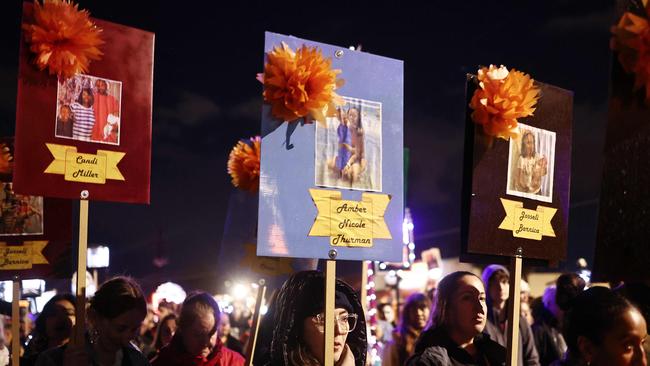
The former president rejected a nationwide ban and backed the right of individual states to decide on the timing, aligning himself with the mainstream position in the party. He is, however, taking a political risk. Successive polls indicate that the majority of American voters do not support tough abortion bans.
Trump has also said that he would make US states and insurers fund IVF treatments if he is elected for a second term. He did not detail how he would fund the expensive in-vitro fertilisation treatments or offer precise details on how his plan would work.
Foreign policy: Ukraine, NATO and ‘World War Three’
Trump’s vow to end the Ukraine war on his first day in office appears to rest on his self-belief as a negotiator. In September he said: “I would get [Putin] into a room. I’d get Zelensky into a room. Then I’d bring them together. And I’d have a deal worked out.”
Trump takes a businesslike approach to President Putin, whom he declined to condemn for the death of Alexei Navalny. The former president is widely believed to be considering a strategy that would involve US military aid being conditioned on Ukraine entering peace talks with Russia, while at the same time promising Moscow that the US will increase funding to Kyiv if Putin refuses to come to the negotiation table.
In his first term Trump threatened to pull the US out of NATO unless countries paid more on defence, stimulating a lot of extra spending. In a campaign video message on “Preventing World War Three”, he talked about the need to “finish the process we began under my administration of fundamentally re-evaluating NATO’s purpose and NATO’s mission”.
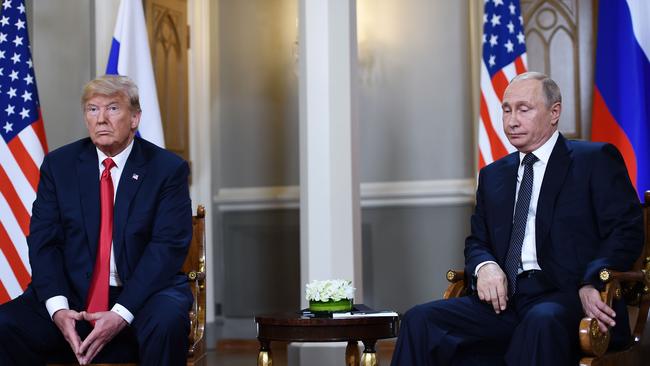
In July he demanded that Israel bring an end to its war with Hamas and that the remaining hostages being held in Gaza be released.
He has said Taiwan should pay the US for defending it. Speaking to Bloomberg Businessweek magazine, he complained that the self-governing island – which Beijing has vowed to annex – was “stealing” American microchip production. “I think Taiwan should pay us for defence,” he added. “You know, we’re no different than an insurance company. Taiwan doesn’t give us anything.”
The former president has said he would deploy special forces against the Mexican cartels. Mark Esper, a defence secretary under Trump, said in his memoir that he twice raised objections to Trump’s suggestion of missile strikes on drug cartels in Mexico.
Government and the ‘deep state’
The former president says he will “clean out the deep state” by reinstating his executive order from 2020, scrapped by Biden, to put federal workers on a new contract to make them easier to fire.
Trump’s main focus is likely to be on clearing out senior staff from the security agencies that he blames for investigating his 2016 campaign’s links to Russia. He said he would establish a “Truth and Reconciliation Commission to declassify and publish all documents on Deep State spying, censorship, and abuses of power”.
He wants to move “up to 100,000 government positions” out of Washington by relocating some agencies. He has pledged to federalise the nation’s capital, removing the powers of locally elected officials. The city “has become a dirty, crime-ridden death trap, that must be taken over and properly run by the federal government”.
Trump said in March last year that his second term would feature “retribution”. This January, after much criticism that he wanted to return as president to take revenge on his enemies, he told a Fox News town hall: “We’re going to make the country so successful again, I’m not going to have time for retribution, and remember this: our ultimate retribution is success.”
The Times





To join the conversation, please log in. Don't have an account? Register
Join the conversation, you are commenting as Logout